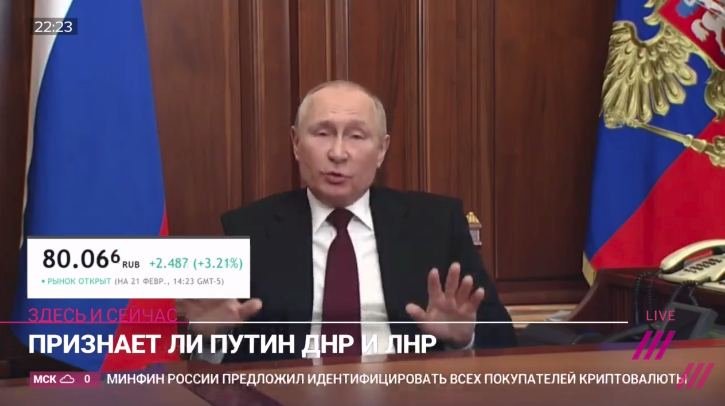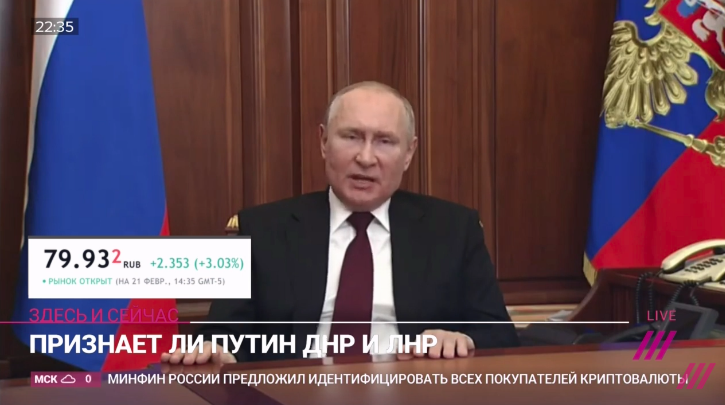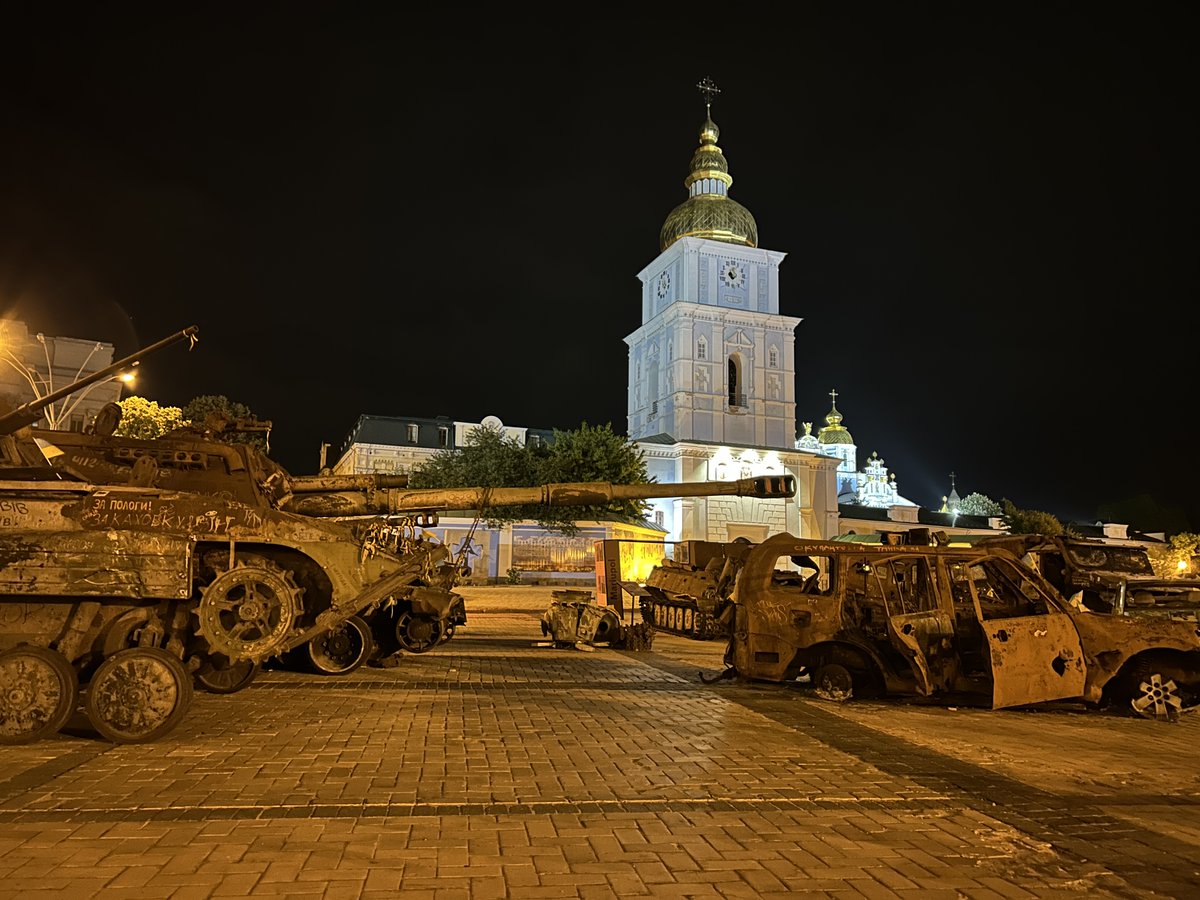Putin begins his fireside chat on recognition of Ukrainian separatist statelets by calling into question the legitimacy of modern Ukraine's borders. 

Putin attacks Lenin and Communist Party of Soviet Union for destroying "historical Russia," says that despite "injustice, deception and plundering of Russia," Russians recognized and even helped newly independent states, including Ukraine, after collapse of USSR. 

Putin: Elections in Ukraine serve as cover for redistribution of wealth among oligarchic clans; corruption has eaten away at Ukrainian statehood. Radicals took advantage of people's discontent in 2014. 

Putin: Why are Ukrainians so poor? Because centuries-long economic cooperation with Russia has ended. Is that the "pro-European civilizational choice"? 

Putin: Ukraine has surrendered its sovereignty to West; it's not even a Western protectorate but a colony with a puppet regime. 

Putin: Ukraine may develop nuclear weapons based on Soviet technology and possibly help from abroad. We must react to danger of Ukraine acquiring WMD. 

Putin: I'll tell you something I've never talked about publicly. During his visit to Moscow in 2000, I asked Bill Clinton how US would view Russia's NATO membership. I won't reveal the details, but the reaction was extremely restrained. 

Putin: Fine, you don't want to see us as friend or ally, but why did you make an enemy out of us? It has nothing to do with our political regime or anything else. US simply doesn't need a big, independent country like Russia. That's the answer to all questions. 

Putin: If US bases missiles in Ukraine, Tomahawk could reach Moscow in less than 35 minutes, ballistic missile in 7-8 minutes, hypersonic missile in 4-5 minutes. That's a dagger at our throat. 

Accusing Kyiv of planning "blitzkrieg" and committing "genocide" against Russians in eastern Ukraine, Putin says he has no choice but to recognize independence of the very puppet statelets he created in 2014. 

Putin ends speech with warning to Kyiv: We demand immediate end to fighting, otherwise all responsibility for continuation of bloodletting will be on your conscience (i.e. not mine). 

"I would like to emphasize again that Ukraine is not just a neighboring country for us. It is an inalienable part of our own history, culture and spiritual space."
Kremlin publishes official translation of Putin's casus belli speech. en.kremlin.ru/events/preside…
Kremlin publishes official translation of Putin's casus belli speech. en.kremlin.ru/events/preside…
• • •
Missing some Tweet in this thread? You can try to
force a refresh













